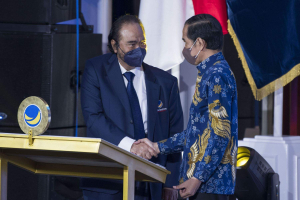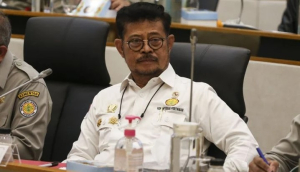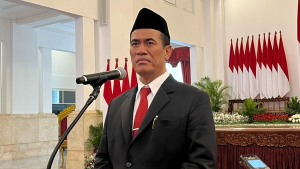Ministry of Agriculture under investigation by the the Corruption Eradication Commission involving another case of alleged corruption
The Corruption Eradication Commission (KPK) is currently investigating three cases of alleged corruption in the Ministry of Forestry (Kementan), involving the procurement of cattle, horticulture, and extortion.
Nawawi Pomolango, Acting Chairman of the KPK, stated that the report regarding the alleged corruption in the procurement of cattle has now moved to the investigation stage.
"The last record we have is that it has been conducted to bring forth the report, which dates back to 2020," said Nawawi on November 27, 2023.
During the press conference, Deputy Chairman of the KPK, Alexander Marwata, revealed two other cases received through public complaints.
"There are three clusters reported by the public, including cattle, horticulture, and extortion, which have been elevated concerning extortion," said Alex.
However, Alex mentioned that as the investigations into the cattle and horticulture sectors are still at the inquiry level. Consequently, the KPK cannot provide further details about these two cases.
"[The inquiry] hasn't revealed the alleged perpetrators yet," said Alex.
Meanwhile, the extortion case has progressed to the investigation stage, and the KPK has named former Minister of Agriculture Syahrul Yasin Limpo (SYL), former Secretary-General of the Ministry of Agriculture Kasdi Subagyono, and the Director of Agricultural Tools and Machinery of the Ministry of Agriculture, Muhammad Hatta, as suspects.
Alex stated that if the KPK finds sufficient evidence, the case will be brought to the exposure stage. The goal is to determine whether the evidence obtained is enough to move on to the investigation stage and subsequently the naming of suspects.
"So, (we) don't mention who was reported. It will be addressed in the investigative process," said Alex.
Tag
Already have an account? Sign In
-
Start reading
Freemium
-
Monthly Subscription
30% OFF$26.03
$37.19/MonthCancel anytime
This offer is open to all new subscribers!
Subscribe now -
Yearly Subscription
33% OFF$228.13
$340.5/YearCancel anytime
This offer is open to all new subscribers!
Subscribe now





